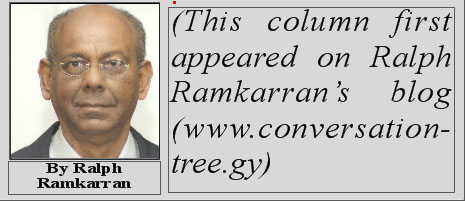The notion in 1950 by the leaders of the PPP that freedom will bring justice has not materialized. We have won Independence and have shaken off authoritarian rule, but justice has not arrived. The rotation of political power between parties, supported mainly by our two major ethnic groups, has not fulfilled the dream of economic justice and equality of opportunity that were the promise of Independence, notwithstanding our economic and human potential. The nature of our exports in nearly fifty years of Independence tells the entire story. It was raw material then and it is raw material now.
That the promise of Independence has not been realized ought not to have been a surprise to our leaders. Imbued with an ideological orientation that suggested the primacy of class conflict and class dominance as the motive forces of injustice, they excluded their regimes from equation and the trap of economic relations of production. The theory holds that exploitation is inherent in an economic system where class rule predominates and such rule predominates in any market, or capitalist, economy.
In Guyana class rule has always predominated. It did under PNC rule and it does under PPP rule. It was not for nothing that President Jagdeo declared that we are building capitalism. Apart from acknowledging the truth, he was proclaiming the supremacy of capital and its owners, over labour and the owners of labour power. President Jagdeo knew that only trickle down justice was available in a post-colonial economy that has seen little structural reform of its productive system. And if there is

